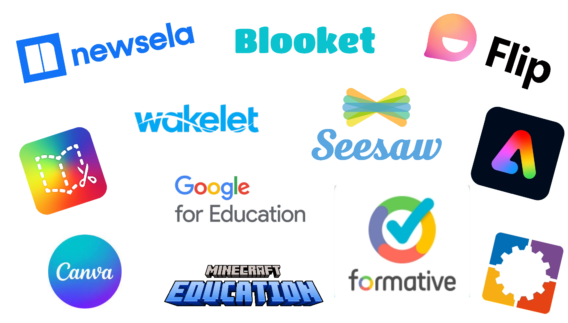Tech Versum: Explore the Future of Technology
Dive into the latest trends and innovations in technology with Tech Versum.
App-solutely Brilliant: Transforming Learning for Everyone
Unlock the future of learning! Discover how innovative apps are transforming education for everyone in ways you never imagined.
How Mobile Applications Are Revolutionizing Education
The rise of mobile applications has significantly transformed the landscape of education, enhancing accessibility and engagement for learners worldwide. With the proliferation of smartphones and tablets, educational resources are now at students' fingertips, allowing for instant access to information anytime and anywhere. This shift not only supports diverse learning styles but also facilitates personalized learning experiences. For example, apps like Khan Academy provide tailored educational content that caters to individual pace and interest, ensuring that learners are more engaged and motivated in their studies.
Moreover, mobile applications have fostered collaborative learning environments that promote interaction among students and educators. Features such as discussion forums, group projects, and real-time feedback enable learners to connect and share ideas beyond traditional classroom boundaries. Platforms like Edmodo exemplify this innovation by allowing teachers to create an interactive space for sharing resources, assignments, and messages. As a result, the integration of mobile applications in education is not just a trend but a revolutionary change that enhances the overall learning experience while preparing students for a digital future.

Top 5 Educational Apps Enhancing Learning for All Ages
In today's digital age, educational apps have transformed learning across various age groups, making education more accessible and engaging. Here are the Top 5 Educational Apps Enhancing Learning for All Ages:
- Khan Academy: This non-profit platform offers a plethora of free resources, including videos and exercises on subjects ranging from mathematics to history, catering to learners of all ages.
- Duolingo: Perfect for language enthusiasts, this app utilizes gamification to make learning new languages fun and engaging. You can explore more about it on the official Duolingo site.
- Quizlet: Ideal for students preparing for exams, Quizlet allows users to create flashcards and quizzes to enhance their study routines. For further details, visit Quizlet's website.
- Prodigy Math: A game-based learning platform that covers math concepts while keeping students engaged. Get insights into its functionalities at Prodigy’s website.
- Google Classroom: This versatile platform streamlines communication between teachers and students, providing tools for organizing assignments and fostering collaboration. Check out more information on Google Classroom.
Is Mobile Learning the Future of Education?
As technology continues to advance, mobile learning is becoming increasingly integral to modern education. This method allows learners to access educational materials anytime and anywhere, breaking the barriers imposed by traditional classroom settings. According to a report from MicroSourcing, mobile learning facilitates personalized learning experiences tailored to individual needs and preferences, making education more inclusive and effective. Furthermore, its accessibility on various devices, such as smartphones and tablets, ensures that education is not confined to a desk.
The potential for mobile learning to shape the future of education is immense. With features like interactive content, gamification, and instant feedback, students can engage with learning materials in ways that traditional methods cannot offer. A study by EdTech Magazine highlights how mobile learning fosters a more dynamic and collaborative environment. As we move forward, it is essential for educators and institutions to embrace this trend, leveraging mobile technology not just as a supplement, but as a core component of educational strategies.